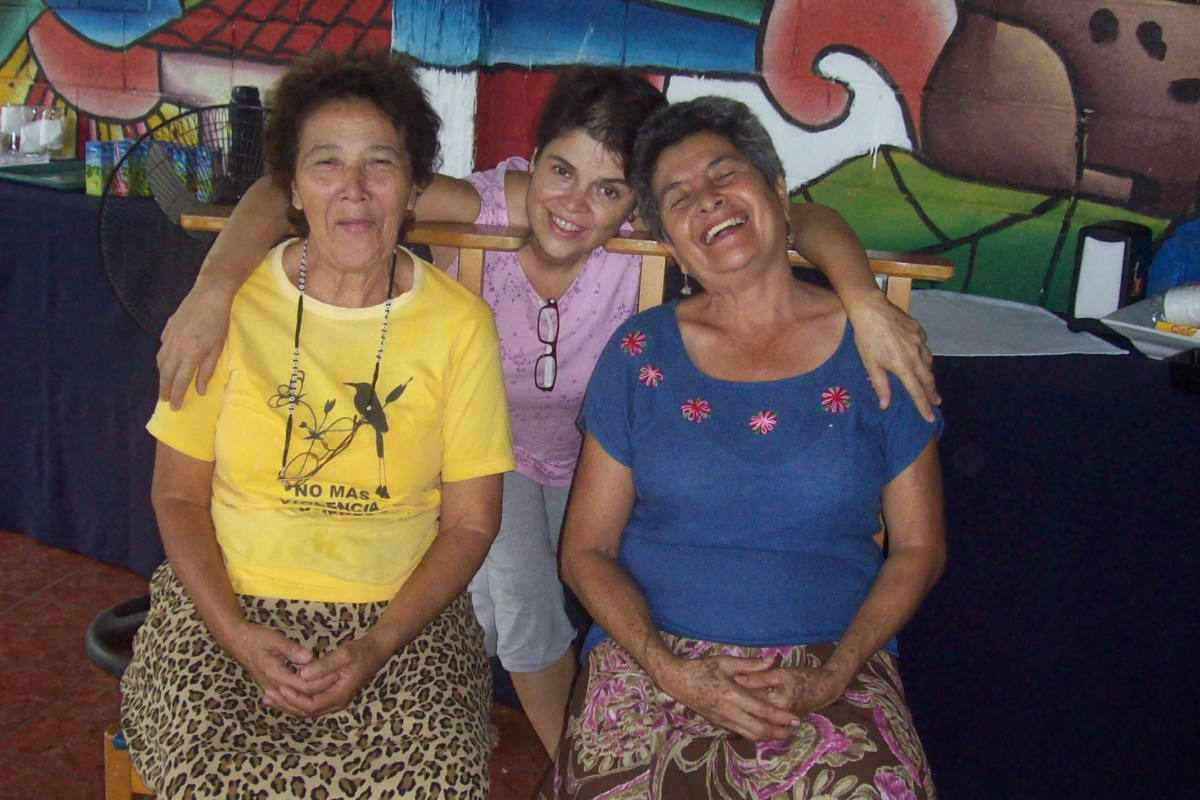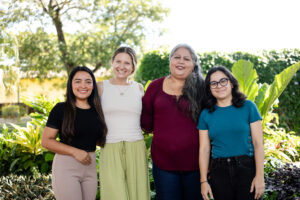
This year the ESPERA program celebrates 15 years of improving women’s lives across Central America and Mexico.
ESPERA began with the simple notion of a lending pool. If communities of women had money to invest in their businesses, they could prosper. We’re excited to announce that over this time, Mary’s Pence has granted $201,120 to those loan pools, which the women took and circulated in their groups and organizations, and over time became $1,128,554 in loans, benefiting 1,351 women and funding 2,726 economic initiatives. More than mere statistics, these numbers represent stories of growth, self-determination and transformation.
The ESPERA program began its work with three organizations, one each in El Salvador, Mexico, and Nicaragua. In partnership with Mary’s Pence, these organizations sought to provide credit access to entrepreneurial women in rural communities. Today, ESPERA partners with 14 organizations, currently reaching 611 women in El Salvador, Guatemala, Honduras, Mexico, Honduras, Nicaragua. We also had one partner in Haiti for a couple of years. Still, due to the deterioration of government institutions and the overall situation in the country, we found the work was facing too many challenges, and we ended our activities there.
The Evolution of the Program
In the early years, ESPERA’s focus was primarily economic. Through community lending pools, we facilitate women’s access to credit in rural areas. In the beginning, members requested loans of $200 to $300, a modest amount that allowed them to start small businesses. Over time, the success of these projects has enabled women to request larger loans, in some cases up to $1,500.
The economic initiatives have grown in size and variety: some women who began with just one cow now have up to seven, and what were once small shops have now expanded into more diversified initiatives, such as hardware stores, motorbike parts and gasoline, clothing shops, and small pharmacies.
From the first visit to Central America in 2006, amid the creation of the ESPERA strategy, Mary’s Pence Staff and Board realized that financial support alone wasn’t enough for the women to achieve economic security because they faced important emotional and social challenges. To make their economic initiatives sustainable, they needed to feel supported and empowered emotionally, as many were dealing with barriers related to violence and challenging emotional situations.
Recognizing this, we partnered with local counselors to launch our first emotional support workshop, providing crucial emotional wellness support in 2011. The first workshop was about women and their relationship with money. The goal was to empower women to manage their own money and make their own decisions, which in Central America and many countries is still viewed as a man’s duty.
The ESPERA program underwent deep evaluations in 2012 and 2019, which led to many improvements and adjustments.
In 2018, Brenda Valladares was hired to focus on Business Skills, marking the first time someone with formal business training was brought on board to give the women more effective guidelines around their economic initiatives.
By 2019, a Follow-up Committee was formed in El Salvador. Representatives of all organizations in that country meet regularly to foster collaboration and generate ideas that significantly contribute to the development of the ESPERA program, ensuring it meets participants’ needs.
Additionally, approximately every two years—except during the pandemic—Mary’s Pence organizes Encuentros, gathering ESPERA participants from all countries to build strong connections, share experiences, and learn through workshops.
Later in 2020, in response to the food insecurity brought by the pandemic, the program incorporated a focus on family agriculture, promoting organic gardens as a way to ensure safe and nutritious food for ESPERA families.
Eva, who has worked in the Mary’s Pence Regional Team for 12 years, explains why the women were suffering from food insecurity, “In the region, especially in El Salvador, there was already a crisis because we are not efficient producers of vegetables, fruits, or staple grains. We are more consumers of these products, which often come from neighboring countries like Guatemala and Honduras. When the pandemic hit in 2020, this situation became even more critical. Products were not coming into the country because of the closed borders, and although families had some money, there was nothing to buy. Women would say, “If only we had a garden, we could at least meet some of our basic needs.” But this also requires money, as agricultural supplies are very expensive. Some of our partners began to ask Mary’s Pence how we could support them. Initially, we gave them basic food baskets, but soon, the women started requesting seeds to plant small home gardens. There was also concern about the safety of the available food—no one knew what kinds of toxic chemicals were being used in cultivation. This is how the idea of requesting support for family gardens, with an organic focus, came about.”
Today, we have four strategic pillars that provide holistic support to women. Our goal is for women to achieve Economic Autonomy through their small businesses. We offer training and networking to Strengthen Women’s Organizations, and through our Family Farming strategy, we help women grow healthy, sustainable food. Additionally, we provide accompaniment and psychological support through our Emotional Wellness strategy, which supports women’s work in the first three pillars, and ensures that all efforts are sustainable and long-lasting.
This growth was only possible thanks to our committed staff members in the region. Over time our team has grown. In 2008, Gilda was the sole person responsible for the program. Over time, others joined—Eva in 2012 (to present) and Brenda Vallederes from 2018 to 2023. Today, the team consists of four people: Mabel, who stepped in when Gilda transitioned out of the role in 2022; Eva; Brenda Pérez; and Clara Horrel.

Profound Changes in Women’s Lives
The impact of the ESPERA program goes beyond economics. Women have not only learned to manage their finances, but they have also gained the confidence to speak about their emotions and seek help when needed. Today, many actively participate in their communities and are willing to leave their homes for more than a day to receive training or attend meetings.
Our ESPERA’s Program Lead, Mabel, says, “I believe that the ESPERA program has represented a new way of seeing organizing among women. Through the ESPERA program, Mary’s Pence has acknowledged their value and supported women in recognizing their abilities and the importance of what they do, which didn’t happen before; women’s roles and work remain undervalued in most Central American countries. Above all, ESPERA has been built on trust, believing in women and the idea that they can fully realize their potential with support and networks to sustain them.”
